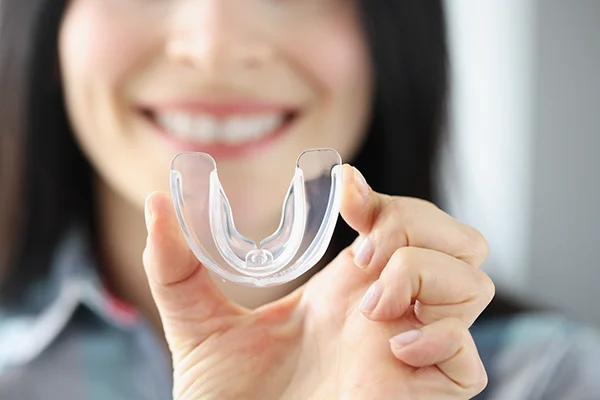
While athletes wear mouth guards to protect teeth and mouth from impact, some patients need mouth guards while sleeping. When worn correctly, they can help to stop the pain and dull ache patients feel while grinding their teeth.

While athletes wear mouth guards to protect teeth and mouth from impact, some patients need mouth guards while sleeping. When worn correctly, they can help to stop the pain and dull ache patients feel while grinding their teeth.
Bruxism is the medical term for jaw clenching and teeth grinding. Those with this condition don’t realize they’re grinding their teeth at night and often wake up with jaw pain as a result. Mouth guards covering the upper jaw and teeth can alleviate all the symptoms that come from bruxism, including:
.webp)
Custom night guards are designed to protect the patient's teeth from the effects of bruxism. They act as a barrier to keep the upper and lower teeth apart to stop the patient from grinding them as they sleep. Wearing a mouth guard at night can also stop toothaches and headaches, which are common issues that come with bruxism.
There are various types of mouth guards available. Stock guards are designed to be one-size-fits-all. They’re the most affordable but might not be the most effective, especially if you have alignment issues. Boil and bite mouth guards generally fit better but may be more difficult to mold properly.
We highly recommend custom-made mouth guards from our office for the best protection. They’re made of durable materials and designed specifically for your mouth.
If you wake up with headaches or have a difficult time sleeping, you may be dealing with bruxism. We encourage you to visit our office for an evaluation. Come see the professionals at Bonnie & Simone today and get all the information about how mouth guards can benefit you.
Request an Appointment